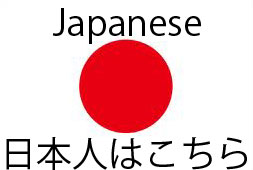The 2007 workshop on 'buried' interface science with X-rays and neutrons was held at the Institute of Materials Research, Tohoku University, in Sendai, Japan, on July 22-24, 2007. The workshop was the latest in a series held since 2001; Tsukuba (December 2001), Niigata (September 2002), Nagoya (July 2003), Tsukuba (July 2004), Saitama (March 2005), Yokohama (July 2006), Kusatsu (August 2006) and Tokyo (December 2006). There are increasing demands for sophisticated metrology in order to observe multilayered materials with nano-structures (dots, wires, etc), which are finding applications in electronic, magnetic, optical and other devices. Unlike many other surface-sensitive methods, X-ray and neutron analysis is known for its ability to see even 'buried' function interfaces as well as the surface. It is highly reliable in practice, because the information, which ranges from the atomic to mesoscopic scale, is quantitative and reproducible. However, the method should be upgraded further to cope with more realistic problems in nano sciences and technologies. Current X-ray methods can give atomic-scale information for quite a large area on a scale of mm2-cm2. These methods can deliver good statistics for an average, but sometimes it is necessary to analyze a specific part in nano-scale rather than an average structure. In addition, there is a need to see unstable changing structures and related phenomena in order to understand more about the mechanism of the functioning of nano materials. Quick measurements are therefore important. Furthermore, in order to apply the method to a more realistic and complex system, we need some visual understanding to discuss the relationship among the different structures that are present in the same viewing. Therefore, 2D/3D real-space imaging is important. Interpretation of roughness is another significant subject, while combination with grazing-incidence small angle scattering (GISAS) will become much more widespread than before. The use of coherent beams and several other new approaches are also significant. Leading senior academics in this field were invited as commentators, Professors J. Harada (Nagoya University & Rigaku Corporation), S. Kikuta (The University of Tokyo & JASRI) and J. Mizuki (JAEA). The invited speakers from Tohoku University in Sendai, workshop site, Professors K. Takanashi, M. Kawasaki and M. Yanagihara, talked about the hot topic of spintronics, and/or control of 'buried' magnetic interfaces. It was stressed that the use of techniques sensitive to specific interfaces is crucial in analyzing many unsolved problems in this field. The workshop proceedings will be published electronically in Journal of Physics: Conference Series, http://www.iop.org/EJ/journal/1742-6596
Workshop on 'buried' interface science with X-rays and neutrons
By Kenji Sakurai on July 24, 2007 6:36 AM
Categories:
About Us
Publications (PDF)
Conference Info
Search
Categories
Monthly Archives
- September 2016 (2)
- August 2016 (1)
- December 2015 (1)
- October 2015 (1)
- August 2015 (2)
- July 2015 (2)
- June 2015 (2)
- May 2015 (3)
- April 2015 (2)
- March 2015 (2)
- February 2015 (1)
- January 2015 (2)
- December 2014 (4)
- November 2014 (3)
- October 2014 (3)
- September 2014 (1)
- August 2014 (4)
- July 2014 (4)
- June 2014 (4)
- May 2014 (3)
- April 2014 (1)
- March 2014 (1)
- February 2014 (1)
- December 2013 (2)
- October 2013 (1)
- September 2013 (1)
- August 2013 (1)
- May 2013 (1)
- March 2013 (2)
- February 2013 (7)
- January 2013 (2)
- December 2012 (7)
- November 2012 (5)
- October 2012 (5)
- September 2012 (3)
- August 2012 (1)
- July 2012 (4)
- June 2012 (5)
- May 2012 (2)
- March 2012 (1)
- February 2012 (1)
- January 2012 (1)
- December 2011 (1)
- November 2011 (8)
- October 2011 (6)
- September 2011 (5)
- August 2011 (8)
- July 2011 (3)
- June 2011 (6)
- May 2011 (9)
- April 2011 (6)
- March 2011 (8)
- February 2011 (7)
- January 2011 (4)
- December 2010 (1)
- October 2010 (5)
- September 2010 (9)
- August 2010 (3)
- July 2010 (11)
- June 2010 (3)
- May 2010 (7)
- April 2010 (4)
- March 2010 (8)
- February 2010 (3)
- January 2010 (9)
- December 2009 (1)
- November 2009 (9)
- October 2009 (3)
- September 2009 (9)
- August 2009 (4)
- July 2009 (10)
- June 2009 (1)
- May 2009 (2)
- April 2009 (5)
- March 2009 (8)
- February 2009 (3)
- January 2009 (7)
- December 2008 (3)
- November 2008 (4)
- October 2008 (7)
- September 2008 (3)
- August 2008 (7)
- July 2008 (6)
- June 2008 (7)
- May 2008 (3)
- April 2008 (7)
- March 2008 (6)
- January 2008 (6)
- December 2007 (2)
- November 2007 (5)
- October 2007 (3)
- September 2007 (4)
- August 2007 (3)
- July 2007 (4)
- June 2007 (2)
- May 2007 (6)
- April 2007 (1)
- March 2007 (4)
- February 2007 (2)
- January 2007 (6)
- December 2006 (1)
- November 2006 (9)
- October 2006 (2)
- September 2006 (3)
- August 2006 (5)
- July 2006 (3)
- June 2006 (3)
- May 2006 (3)
- March 2006 (2)
- February 2006 (5)
- January 2006 (5)
- December 2005 (1)
- November 2005 (5)
- October 2005 (1)
- September 2005 (2)
- August 2005 (6)
- July 2005 (1)
- June 2005 (2)
- May 2005 (3)
- April 2005 (3)
- March 2005 (5)
- February 2005 (4)
- January 2005 (2)
- December 2004 (4)
- November 2004 (6)
- October 2004 (1)
- September 2004 (1)





